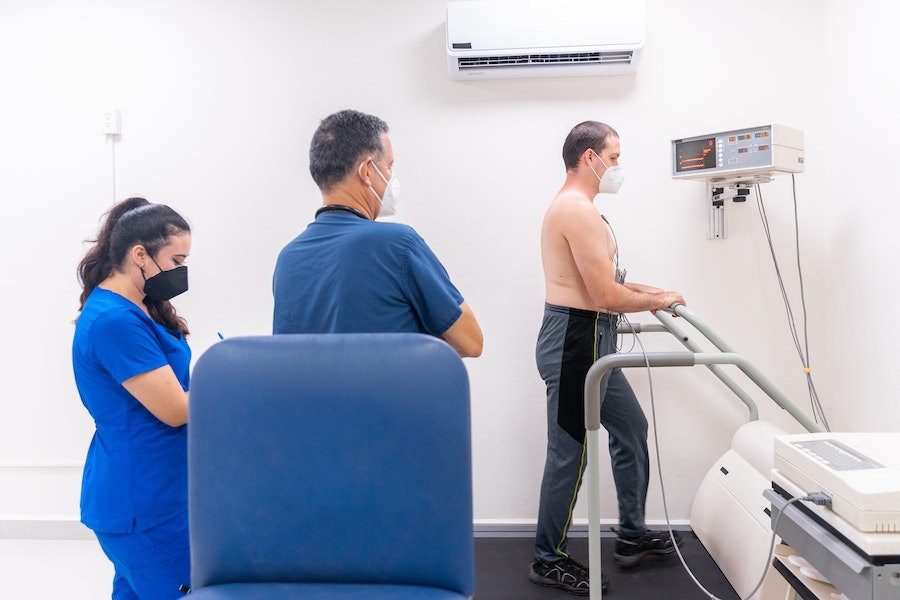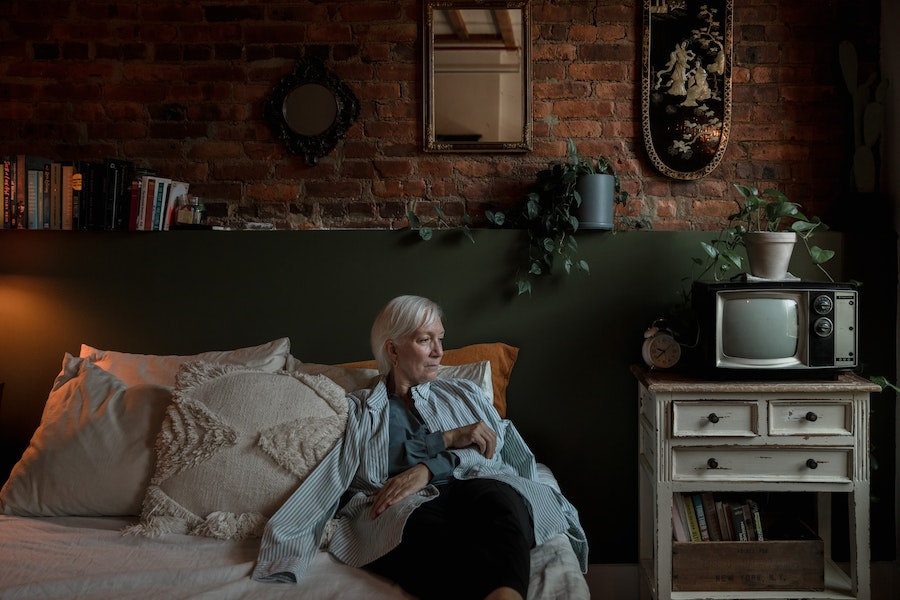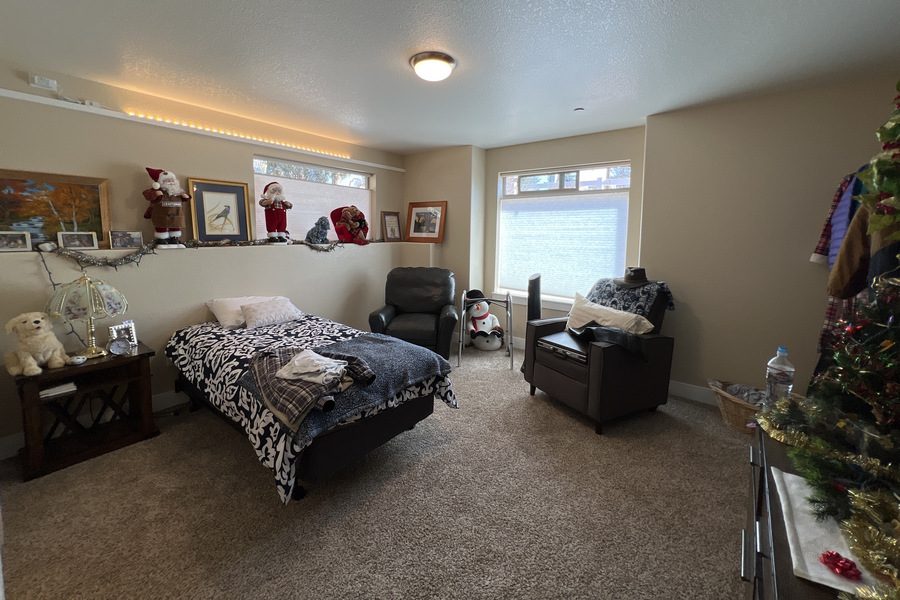


Between memory care vs. home care for early-stage dementia, which offers the most tailored support for cognitive decline?
Dementia is a devastating diagnosis that affects millions of seniors and their families. As symptoms progress, caring for a loved one with dementia becomes increasingly complex. This is especially true in the early stages when your loved one still has some independence but requires more supervision and assistance.
For many families, deciding between memory care or hiring home health care is a dilemma. While home care provides familiar surroundings, memory care communities offer specialized care and engagement that could help slow the progression of the disease.
Below is an in-depth look at the differences between the two options to help families make the best choice.

Before contemplating memory care vs. home care, evaluate your loved one’s current physical and mental status. How mobile are they? Can they successfully navigate the home and perform self-care unaided?
Even early-stage dementia impacts recall, judgment, and orientation. Fall risks dramatically increase as cognition declines.
A home with stairs that isn’t wheelchair accessible may quickly become unsuitable and unsafe.
Individuals in the early stages of Alzheimer’s or related dementias require increasing supervision. They may experience confusion about taking medications correctly or following safety practices like turning off the stove.
Hazards like tripping risks go unnoticed. Well-meaning seniors may even wander away from home if left unsupervised.
Consider how much direct monitoring your loved one needs now and how needs are likely to escalate.
Early-stage dementia reduces initiative and interest in self-directed activities. Without encouragement, your loved one may sit alone for hours, inactive and withdrawn.
Structured daily activities and social engagement are vital. Can the home environment provide meaningful activity and visitors to prevent isolation and depression?

Purpose-built memory care homes provide enhanced safety with secured doors, wheelchair-friendly floor plans, easily accessible bathrooms with grab bars and walk-in showers, and monitored outdoor spaces.
Hallways and common areas are designed to support navigation and minimize disorientation. Shared spaces encourage mobility and socialization.
Research shows that participating in a stimulating environment and routine benefits those with dementia.
Memory care activities focus on life skills, creative expression, physical movement, sensory stimulation, reminiscing, social interaction, and stress reduction.
Activities are based on residents’ abilities and interests to optimize engagement.
A trained memory care staff provides person-centered care based on each resident’s needs, abilities, preferences, and background. Caregivers are skilled at minimizing anxiety while providing hygiene assistance, cueing for self-care tasks, and supervising activities and meals tailored to changing dietary needs.
The staff understands dementia and responds with skill and compassionate patience to reduce resistant behaviors. Counselors support family members as well.
Loneliness and isolation exacerbate dementia symptoms and speed decline. A memory care community provides readily available social interaction with peers, many also experiencing cognitive challenges.
Residents benefit from camaraderie in group dining and activities. Visits from community volunteers provide valuable connections beyond facility staff and families.

Creating a safer, dementia-friendly home environment requires an evaluation by an occupational therapist, or anyone experienced in dementia care.
Recommended changes may include adjusting lighting, removing tripping hazards such as area rugs, and installing grab bars and handrails. Other modifications like raising toilets and shower seats, locking up toxic cleaning products or sharp tools, and securing doors and gates are also necessary.
The effort and expense could be significant if major renovations like stair lifts, ramps, or first-floor bedrooms are needed.
Families must hire several care workers to provide coverage during needed hours. They will assist with dressing, bathing, meals, medication management, transportation, and activity assistance.
Most are caring individuals but have minimal dementia training. Their ability to manage dementia behaviors and engage seniors is generally limited.
Your care assistants can give you essential support but aren’t a substitute for specialized memory care providers.
Adult daycare centers offer those with dementia supervised care and activities during the day but do not address nighttime wandering risks and needs. Transportation must be arranged to and from the facility.
Some early-stage seniors who have dementia often resist attending. Costs can range from $60-$125 daily, or higher. This option provides helpful daytime assistance, but around-the-clock care will still be needed quickly.

Below are vital questions families should consider when deciding between in-home care and memory care community placement:
As cognition declines, hazards multiply. Even attentive family caregivers cannot provide 24/7 eyes-on oversight. Memory care communities conduct rigorous safety reviews and adaptations.
Robust care coordination is essential as needs escalate. Dedicated care managers at memory care communities oversee and adapt care services and coordinate with families.
Home caregivers can only provide care management.
Without directed encouragement and assistance, seniors with dementia become increasingly sedentary and isolated. Memory care programming provides ongoing tailored engagement and stimulation that promotes a better quality of life.
Although in-home care may seem more affordable, when total costs are projected long-term, the expenses frequently exceed monthly memory care fees, especially when safety renovations and round-the-clock oversight are factored in.
Family members attempting to oversee in-home care while maintaining careers and their households face burnout as demands escalate. Memory care communities provide experienced professionals to coordinate care, allowing family members to focus on relationship-building visits.

Caring for a loved one with progressive dementia is filled with agonizing choices. As symptoms advance, memory care communities designed specifically for Alzheimer’s and related types of dementia often provide the safest, most engaging option paired with compassionate, dedicated care teams.
Memory care programming and peer connections help slow inevitable declines and support meaningful quality of life.
While placing a parent or spouse in assisted living and memory care is enormously complicated for some families, it ultimately proves to be the wisest long-term decision for many families. However, the key is moving your loved one earlier rather than later.
Find out more why memory care is usually a better option for seniors with early dementia. Contact us today.